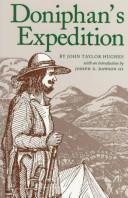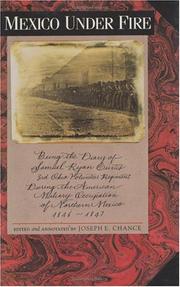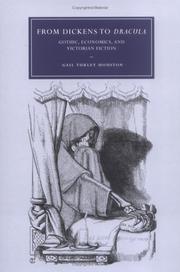| Listing 1 - 10 of 11 | << page >> |
Sort by
|
Book
ISBN: 1443863564 9781443863568 1322011265 9781322011264 9781443852975 144385297X Year: 2013 Publisher: Newcastle upon Tyne Cambridge Scholars Publishing
Abstract | Keywords | Export | Availability | Bookmark
 Loading...
Loading...Choose an application
- Reference Manager
- EndNote
- RefWorks (Direct export to RefWorks)
The Catholic convert and women of letters Alice Meynell (1847-1922) ranks as a sophisticated essayist and poet of the late Victorian period and the early twentieth century. She had the advantage of an educated father and a musical mother who spent much of their early time with the family visiting Europe, especially Italy. Alice's father was a friend of Dickens and her mother was admired by Dickens. Alice and her sister Elizabeth, later the famed artist Lady Butler, were educated privately and...
Authors, English --- Meynell, Alice, --- Thompson, A. C. --- Meynell, --- MEYNELL, ALICE CHRISTIANA THOMPSON, 1847-1922 --- ENGLISH LITERATURE --- BIOGRAPHY & AUTOBIOGRAPHY --- LITERARY CRITICISM
Book
ISBN: 1574417770 9781574417777 9781574417678 1574417673 Year: 2019 Publisher: Denton, Texas
Abstract | Keywords | Export | Availability | Bookmark
 Loading...
Loading...Choose an application
- Reference Manager
- EndNote
- RefWorks (Direct export to RefWorks)
"Book is a collection of the newspaper articles by James L. Freaner for the New Orleans Delta newspaper, sent from the Mexican American War during 1847-1848. The editors have added historical context and notes"--
Mexican War, 1846-1848 --- Chapultepec, Battle of, Mexico City, Mexico, 1847 --- Journalism, Military. --- Journalists --- Campaigns --- Freaner, James L.,

ISBN: 0585174253 9780585174259 0890967954 9780890967959 Year: 1997 Volume: 56 Publisher: College Station Texas A & M University Press
Abstract | Keywords | Export | Availability | Bookmark
 Loading...
Loading...Choose an application
- Reference Manager
- EndNote
- RefWorks (Direct export to RefWorks)
Doniphan's Expedition, 1846-1847 --- Mexican War, 1846-1848 --- Soldiers --- Regions & Countries - Americas --- History & Archaeology --- United States - General --- Armed Forces personnel --- Members of the Armed Forces --- Military personnel --- Military service members --- Service members --- Servicemen, Military --- Armed Forces --- Chihuahua Expedition, 1846-1847 --- Personal narratives. --- Personal narratives --- Biography --- Campaigns --- Hughes, John Taylor, --- Navajo Indians --- Kearny's Expedition, 1846. --- Campaigns. --- Wars. --- New Mexico --- California --- Description and travel.
Book
ISBN: 1299054064 1603446850 9781603446853 1603442960 9781603442961 Year: 2011 Publisher: College Station Texas A & M University Press
Abstract | Keywords | Export | Availability | Bookmark
 Loading...
Loading...Choose an application
- Reference Manager
- EndNote
- RefWorks (Direct export to RefWorks)
The mid-nineteenth century was a tumultuous yet formative time for the Mesilla Valley, home to present-day Las Cruces, New Mexico. With the coming of the U.S. Army to Mexican territory in 1846, the region became the site of a continent-shaping power struggle between two rival nations.When Mexican governor Manuel Armijo unexpectedly fled Santa Fe, he left the New Mexico territory undefended, and it fell to forces under Brigadier General Stephen Watts Kearny in a bloodless occupation. In the ensuing two decades, the southern portion of New Mexico's Rio Grande Valley played a prominen
Book
ISBN: 0674545370 0674545389 9780674545380 9780674545168 0674545168 Year: 2017 Publisher: Cambridge, MA
Abstract | Keywords | Export | Availability | Bookmark
 Loading...
Loading...Choose an application
- Reference Manager
- EndNote
- RefWorks (Direct export to RefWorks)
Medical care prices in the United States are not only the most expensive in the world, but there are wide variations in what physicians are paid. Doctors at the frontlines of medical care who manage complex conditions argue that they receive disproportionately lower fees than physicians performing services such as minor surgeries and endoscopies. Fixing Medical Prices goes to the heart of the U.S. medical pricing process: to a largely unknown yet influential committee of medical organizations affiliated with the American Medical Association that advises Medicare. Medicare’s ready acceptance of this committee’s recommendations typically sets off a chain reaction across the entire American health care system. For decades, the U.S. policymaking structure for pricing has reflected the influence of physician organizations. What Miriam Laugesen’s rich analysis shows is how these organizations navigate the arcane and complex work of this advisory committee. Contradicting the story of a profession in political decline, Fixing Medical Prices demonstrates that the power of physician organizations has simply become more subtle. Laugesen’s investigation into the exorbitant cost of American medical care will be of interest to those who follow the politics of health care policy, the influence of interest groups on rate setting, and the medical profession’s past and future role in our health care system.
Medical economics --- Medical care --- Medicare. --- Health services administration --- Medicare --- Health insurance --- Older people --- Medicaid --- Medigap --- Evaluation. --- American Medical Association. --- A.M.A. (American Medical Association) --- AMA (American Medical Association) --- 美國醫學會 --- National Medical Association (1847- ) --- Ittiḥādīyah-ʼi Pizishkān-i Amrīkā --- اتحاديۀ پزشکان امريکا
Book
ISBN: 077357803X 1282865544 9786612865541 0773574999 9780773574991 9780773532694 0773532692 9780773533035 0773533036 9781282865549 6612865547 Year: 2008 Publisher: Montreal McGill-Queen's University Press
Abstract | Keywords | Export | Availability | Bookmark
 Loading...
Loading...Choose an application
- Reference Manager
- EndNote
- RefWorks (Direct export to RefWorks)
The recovery of Watson's thought is particularly valuable. Sibley shows that Watson, an internationally respected philosopher in the early twentieth century, discussed idealism and support for imperialism in ways that are particularly relevant in our new age of empire. A consideration of Grant's relationship to Hegel illuminates what led Grant to declare that Canada was "impossible" in the age of technology. Sibley's comparison of Grant and Trudeau is both unexpected and intriguing. So, too, is his analysis of the "illiberal strands" in Taylor's "politics of recognition."
Political science --- Idées politiques --- Philosophy. --- Hegel, Georg Wilhelm Friedrich, --- Watson, John, --- Grant, George Parkin, --- Taylor, Charles, --- Watson, John, 1847-1939 --- Grant, George, --- Political and social views. --- Pensée politique et sociale. --- Canada --- Politics and government --- Politique et gouvernement --- Philosophie. --- Idees politiques --- Pensee politique et sociale.
Book
ISBN: 077341164X 9780773411647 Year: 2012 Publisher: Lewiston, N.Y. Edwin Mellen Press
Abstract | Keywords | Export | Availability | Bookmark
 Loading...
Loading...Choose an application
- Reference Manager
- EndNote
- RefWorks (Direct export to RefWorks)
"America the Beautiful," written in 1893 by Wellesley College English Professor and Poet, Katharine Lee Bates (1859-1929), revised and first published in 1895 and revised again in 1904 and 1911, stands among the classic pieces of American National hymnody. The poem reflects not only the natural grandeur of the United States in the late nineteenth century-from sky to earth, and from sea to another-but it depicts the ideal vision of a poet, writing only three decades removed from the American Civil War, who strived extremely hard to communicate to her readers the necessity to preserve the fundam
Bates, Katharine Lee, 1859-1929. America the beautiful. --- Hymns, English -- United States -- History and criticism. --- National songs -- United States -- History and criticism. --- Ward, Samuel A., 1847-1903. America the beautiful. --- National songs --- Hymns, English --- Music --- Music, Dance, Drama & Film --- Music History & Criticism, National - Folk, Patriotic, Political --- Anthems, National --- National anthems --- Songs, National --- National music --- Patriotic music --- Songs --- Folk songs --- History and criticism --- Bates, Katharine Lee, --- Ward, Samuel A., --- Jalbert, Pierre,

ISBN: 0585361185 9780585361185 0875651275 9780875651279 Year: 1994 Publisher: Fort Worth : Texas Christian University Press,
Abstract | Keywords | Export | Availability | Bookmark
 Loading...
Loading...Choose an application
- Reference Manager
- EndNote
- RefWorks (Direct export to RefWorks)
Colonel Samuel Ryan Curtis, engineer, lawyer, and graduate of West Point, arrived in Mexico in July of 1846 as commander of the 3rd Ohio Volunteer Regiment to find a volatile and chaotic situation in occupied towns along the Rio Grande. American civilians of the lowest sort - men and women - mingled with Mexican townspeople, robbing, murdering, and raping. Neither civil nor military law made provisions for governing municipalities under such conditions. Nor was the U.S. military prepared for a struggle against Mexican guerrilla forces and desperate bandits. Colonel Curtis was a diary keeper, and this record of his experiences in Mexico gives a clear picture of his efforts to restore and maintain order under nearly impossible conditions: of death and suffering in his regiment from disease, not fighting, and of the tedium of army camp life. A reflective man as well as an educated one, Curtis was a keen observer. He documented social and economic circumstances, flora and fauna, and the weather, even as he chronicled political conditions and martial unrest. The resulting diary is a major contribution to studies of the Mexican War.
Mexican War, 1846-1848 --- Soldiers --- United States - General --- Regions & Countries - Americas --- History & Archaeology --- Armed Forces personnel --- Members of the Armed Forces --- Military personnel --- Military service members --- Service members --- Servicemen, Military --- Armed Forces --- Mexican-American War, 1846-1848 --- United States-Mexican War, 1846-1848 --- Personal narratives, American. --- Campaigns --- Diaries. --- Personal narratives, American --- Diaries --- Curtis, Samuel Ryan, --- Curtis, Sam'l R. --- Curtiss, Samuel R. --- United States. --- Ohio Volunteer Regiment, 3rd (1846-1847) --- Curtis, Samuel R.
Book
ISBN: 1282359975 9786612359972 0520944895 9780520944893 9781282359970 9780520257689 0520257685 Year: 2010 Publisher: Berkeley, Calif. University of California Press
Abstract | Keywords | Export | Availability | Bookmark
 Loading...
Loading...Choose an application
- Reference Manager
- EndNote
- RefWorks (Direct export to RefWorks)
In 1847, during the great age of the freak show, the British periodical Punch bemoaned the public's "prevailing taste for deformity." This vividly detailed work argues that far from being purely exploitative, displays of anomalous bodies served a deeper social purpose as they generated popular and scientific debates over the meanings attached to bodily difference. Nadja Durbach examines freaks both well-known and obscure including the Elephant Man; "Lalloo, the Double-Bodied Hindoo Boy," a set of conjoined twins advertised as half male, half female; Krao, a seven-year-old hairy Laotian girl who was marketed as Darwin's "missing link"; the "Last of the Mysterious Aztecs" and African "Cannibal Kings," who were often merely Irishmen in blackface. Upending our tendency to read late twentieth-century conceptions of disability onto the bodies of freak show performers, Durbach shows that these spectacles helped to articulate the cultural meanings invested in otherness--and thus clarified what it meant to be British-at a key moment in the making of modern and imperial ideologies and identities.
Human body --- Freak shows --- Abnormalities, Human --- Body, Human --- Human beings --- Body image --- Human anatomy --- Human physiology --- Mind and body --- Sideshows --- Abnormalities --- Anomalies, Congenital --- Birth defects --- Congenital abnormalities --- Congenital anomalies --- Defects, Birth --- Deformities --- Developmental abnormalities --- Human abnormalities --- Malformations, Congenital --- Morphology --- Pathology --- Teratogenesis --- Teratology --- Social aspects --- History --- Malformations --- Exhibitions de monstres --- Corps humain --- Histoire --- Aspect social --- 1847. --- anthropology. --- british culture. --- cannibal kings. --- conjoined twins. --- cultural otherness. --- cultural studies. --- deformity. --- disability. --- elephant man. --- european history. --- exploitation. --- freak show performers. --- freak shows. --- great britain. --- human bodies. --- imperial ideology. --- lalloo. --- missing link. --- modern history. --- modern identity. --- modern sensibilities. --- national identity. --- nonfiction. --- psychology. --- scientists. --- social history. --- social issues. --- social purpose. --- social purposes. --- History of civilization --- anno 1800-1899 --- Great Britain

ISBN: 0521846773 0521045797 1107152534 0511125690 0511126247 0511326831 0511484844 1280199245 0511199740 0511125380 9780511126246 9780511125386 0511124104 9780511124105 9780511125690 9780511484841 9781280199240 9786610199242 6610199248 9780521846776 9780521846776 9781107152533 9780511199745 9780511326837 9780521045797 Year: 2005 Publisher: Cambridge, UK New York Cambridge University Press
Abstract | Keywords | Export | Availability | Bookmark
 Loading...
Loading...Choose an application
- Reference Manager
- EndNote
- RefWorks (Direct export to RefWorks)
Ranging from the panoramic novels of Dickens to the horror of Dracula, Gail Turley Houston examines the ways in which the language and imagery of economics, commerce and banking are transformed in Victorian Gothic fiction, and traces literary and uncanny elements in economic writings of the period. Houston shows how banking crises were often linked with ghosts or inexplicable non-human forces and financial panic was figured through Gothic or supernatural means. In Little Dorrit and Villette characters are literally haunted by money, while the unnameable intimations of Dracula and Dr Jekyll and Mr Hyde are represented alongside realist economic concerns. Houston pays particular attention to the term 'panic' as it moved between its double uses as a banking term and a defining emotion in sensational and Gothic fiction. This stimulating interdisciplinary book reveals that the worlds of Victorian economics and Gothic fiction, seemingly separate, actually complemented and enriched each other.
Economics and literature --- Economics in literature. --- Financial crises in literature. --- Stoker, Bram, --- Dracula, Count (Fictitious character). --- English fiction --- Financial crises --- Gothic revival (Literature) --- Horror tales, English --- Money in literature. --- History --- History and criticism. --- Dickens, Charles, --- Knowledge --- Economics. --- Arts and Humanities --- Literature --- Dracula, Count (Fictitious character) --- Crashes, Financial --- Crises, Financial --- Financial crashes --- Financial panics --- Panics (Finance) --- Stock exchange crashes --- Stock market panics --- Crises --- Literature and economics --- Economic aspects --- Dickens, Charles --- Dikensi, Čʻarlz, --- Dickens, Karol, --- Dikens, Charlz, --- Ti-keng-ssu, --- Digengsi, --- Dikkens, Charlz, --- Dikensas, Čarlzas, --- Ṭikkan̲s, Cārls, --- Ṭikkan̲cu, Cārlacu, --- Ṭikkan̲s, Cārlas, --- Диккенс, Чарлз, --- דיקינס, צ׳רלס, --- דיקנס, ַ צ׳רלז --- דיקנס, טשרלס --- דיקנס, צ׳רלז, --- דיקנס, צ׳רלס --- דיקנס, צ׳רלס, --- דיקענס, טש --- דיקענס, טשארלז --- דיקענס, טשארלז, --- דיקענס, טש., --- דיקקענס, טשארלז --- טשרלס, דיקנס --- チャールズ.ディケンズ, --- 狄更斯查尔斯, --- Boz, --- Sparks, Timothy, --- DICKENS (CHARLES), 1812-1870 --- STOKER (BRAM), 1847-1912 --- ROMAN ANGLAIS --- ECONOMIE ET LITTERATURE --- CRISES BOURSIERES --- LITTERATURE D'EPOUVANTE ANGLAISE --- NEO-GOTHIQUE (LITTERATURE) --- ARGENT DANS LA LITTERATURE --- DRACULA --- 19E SIECLE --- HISTOIRE ET CRITIQUE --- GRANDE-BRETAGNE
| Listing 1 - 10 of 11 | << page >> |
Sort by
|

 Search
Search Feedback
Feedback About UniCat
About UniCat  Help
Help News
News